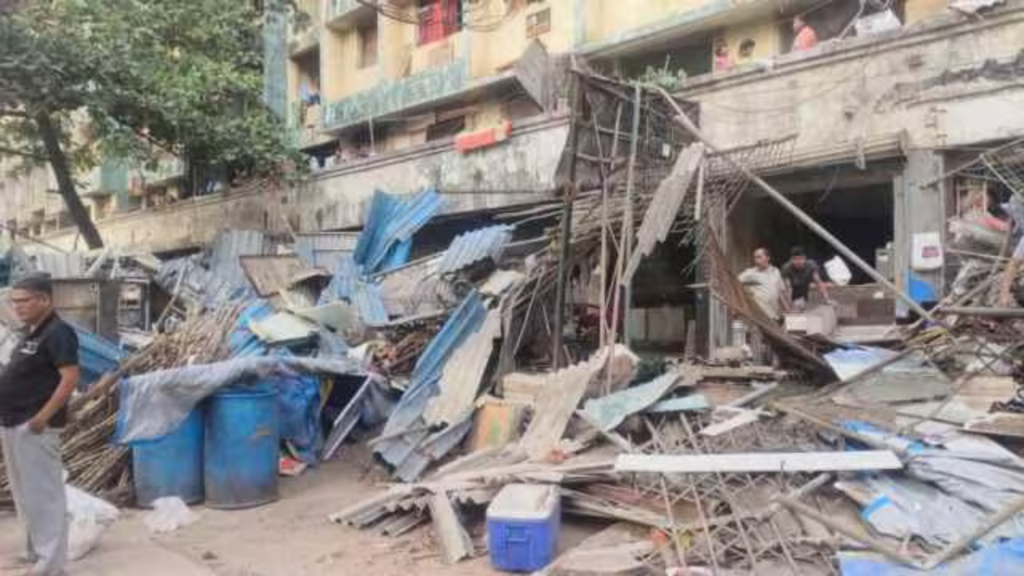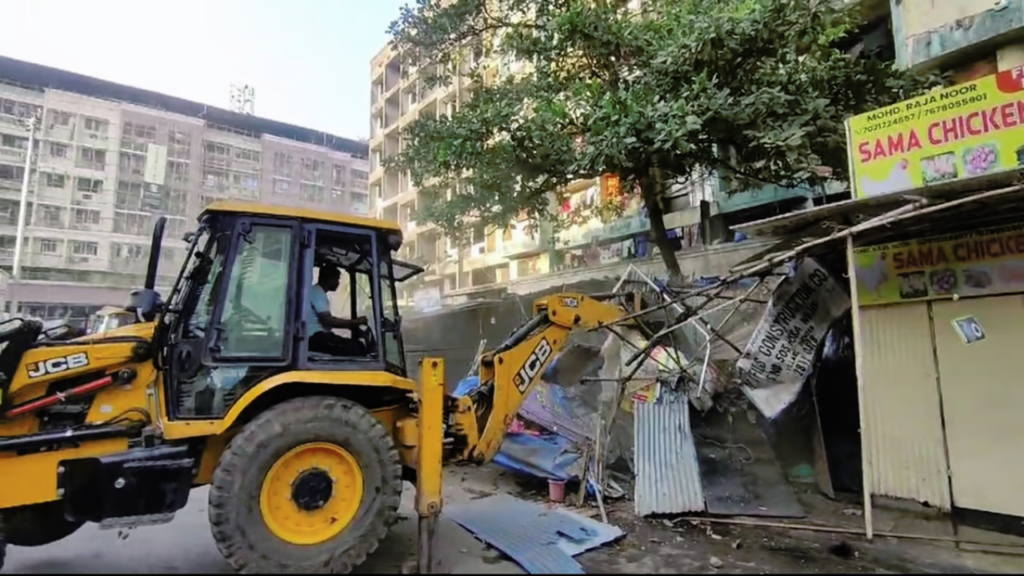Shops owned by Mulsims torn down at Mohammed Ali Road following the communal clashes in Mumbai
By Tuesday, municipal authorities took a drastic step by deploying excavators to demolish over a dozen Muslim-owned shopfronts in the locality where the clashes had occurred, as reported by local media. The following evening, an additional 40 shopfronts were demolished on Mohammed Ali Road, a major downtown thoroughfare and a center of local Muslim commerce, which had also witnessed clashes over the weekend.
Two days following a confrontation between two community groups in Mira Bhayander, a city located in Maharashtra’s Thane district, the Mira Bhayander Municipal Corporation deployed bulldozers on Tuesday afternoon to dismantle approximately 15 structures in the predominantly Muslim-inhabited Haidary Chowk area in Mira Road.

Officials insisted that the demolitions were part of a routine campaign aimed at clearing illegal encroachments and easing pedestrian traffic. They argued that the drive had been planned before the Sunday clashes. However, critics, including rights groups, denounced the move, labeling it an arbitrary and punitive action against the Muslim community.
At least 13 arrests in connection with the weekend clashes have been made, highlighting the challenges faced in maintaining communal harmony in the diverse and religiously sensitive country of India.
What did the Amnesty International say?
The term “bulldozer justice” has gained prominence in India, as authorities increasingly resort to demolishing property as a form of punishment for suspected criminals. Critics argue that this practice amounts to unlawful collective punishment, disproportionately affecting the country’s Muslim minority.
Aaker Patel the chair of board Amnesty International issued a statement, asserting that the demolition drive in Mumbai reflected a “policy of arbitrarily and punitively demolishing Muslim properties following episodes of communal violence.”

“Such unlawful action against people suspected of violence, allegedly without notice or other due process requirements is a major blow to the rule of law,” he said, calling for safeguards against forced evictions to be executed.
“The International Covenant on Economic, Social and Cultural Rights, to which India is a state party, prohibits forced evictions. Adequate compensation must be offered to all those affected without discrimination, ensure that victims have access to effective remedy, and those responsible are held to account”, he added.
This controversial approach has been observed in various Indian states governed by Modi’s Bharatiya Janata Party (BJP) in recent years, particularly targeting the homes of individuals accused of participating in anti-government protests, with Muslims being the primary victims.
Officials defending the demolitions argue that they are lawful, targeting structures constructed without official approval. However, victims dispute this, claiming they are not provided with the legally required notice period to contest demolition orders.
Last year in August, local authorities demolished what they term illegal houses in the Nuh district of northern state of Haryana. The violence quickly spread over into adjoining areas, including the business hub Gurugram, which neighbours New Delhi and where vehicles, a mosque and some shops were torched, and several eating places were vandalised. Officials said there was no data on the number of structures demolished, local media reported that over 200 houses were razed.









